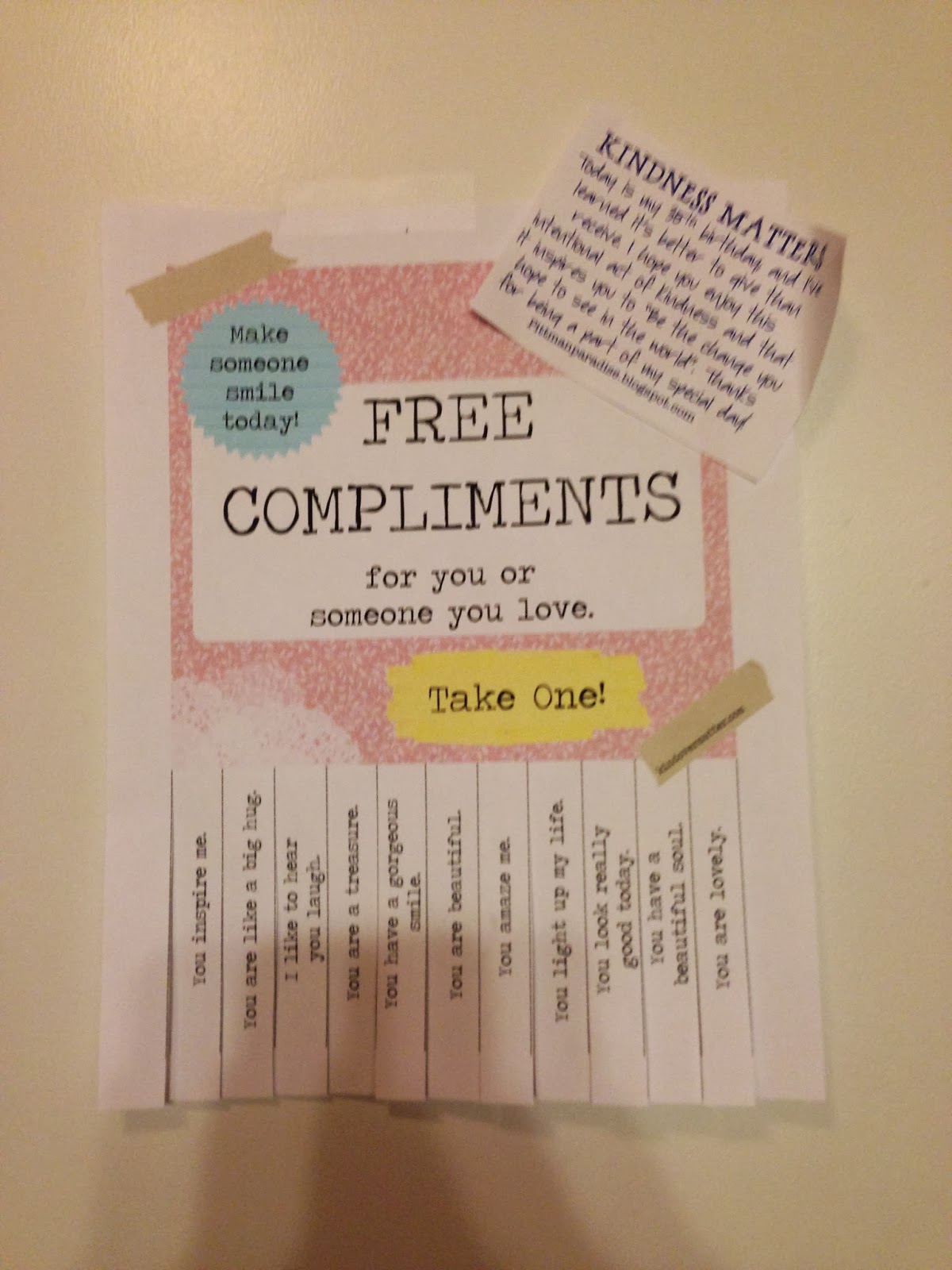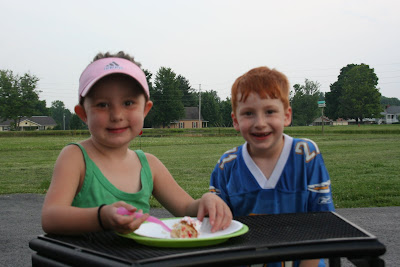As a mom who blogs, tweets, uses Facebook & Instagram, takes online classes, and shops online, I often feel like I'm doing a pretty decent job keeping up with the ever changing online world. As soon as our children began using the internet and social media we placed certain perimeters on their usage in an effort to monitor not just them, but the people who might be reaching out to them online. First of all, our desktop is located in our dining room/ office which is an open space connected to our kitchen and living room. Despite having this quote displayed in our home, and constantly using it as our family motto, the truth is that when nobody is looking, people (but specifically teenagers) will do stupid things.
First, I want to share with you the good news about stalking your child's online & mobile interactions. There are going to be moments that your children make you VERY proud. They are going to do and say things, not knowing that you are watching, that are going to make you wonder what you ever did to deserve such an awesome kid. One such time was when I was reading through my then 12 year old's texts. His friend said, "Who do you want to do it with?" (referring to sex). My son replied by simply saying, "I think we're too young for that. Let's talk about something else". The person he was texting with didn't give him a hard time. They didn't mock him. They took his lead and moved on to a more age appropriate discussion topic. I have also seen my children use the internet to acquire new skills and to share their skills with others.
In fact during his lecture, Kevin, suggested that parents make a User-Lease Agreement with their children. The idea is that in order to have the privilege of interacting online or using their mobile device, your children in turn must show you one thing each week that they have either learned or found on the internet that will make you proud. How great is that? My kids have so many interests and the internet is full of so many cool tools that can help them develop into even more interesting and well rounded people. I've got one son who is interested in computer engineering, and one who plays the drums and wants to become an actor, and then there's my daughter who loves to paint and wants to be a cheerleader someday. And there are opportunities for all of them to expand these skills on the internet. For kids interested in engineering, there is an amazing site (which Kevin talked about) called Google Sketchup which allows them to build 3-D images. My daughter and I have painted canvases to hang in her room by watching video tutorials on YouTube. One of our favorites is the YouTube channel Schaefer Art where this guy Brandon will take you step by step through creating a beautiful painting. It's the 21st century's version of Bob Ross! Check out our paintings below. And then of course my budding actor and drummer is able to watch his favorite comedy sketches and drum solos and even upload his own short skits and songs for others to see.
Okay.. So now, let's talk about the ugly stuff. When you stalk your kids online, there is also a chance that you are going to face some big disappointments. There is a chance that you will see a side of them or their friends that makes you cringe.
After some irresponsible behavior both on and off line, my husband and I took away our oldest son's cell phone and closed down his FB account. However, my children's schools issue digital devices to every child in kindergarten through 12th grade. For our oldest, that meant that he had a laptop which he had been given to use for class and various assignments. Not only that, but virtually every friend he has is also connected to the internet via a phone or home computer. So, the idea of simply not allowing your children to be online unless they are in a public space in your home, is no longer realistic. One night, as I was new to Twitter, I decided to search for each of my kids and see if they had opened Twitter accounts. What I found shocked me. Our oldest, who had been banned by us from using social media, had an account. His tagline was, "Strict parents make sneaky kids". We were crushed. In the next few days, his online alter ego came crashing down. The discovery of the Twitter account lead us to a "secret" e-mail account and then also to a FB account that he was using under a fake name. He claimed to have forgotten the password to the FB account, but these strict parents also have some sneaky in them as well, and we were eventually able to hack into his FB account. We were in no way prepared for what we would see. Our son had messages with other kids where he was talking about drinking, sex, and stealing. While he was not actually doing any of these things (and trust me I'm not being naive here), he was able to be whoever he wanted to be online and had created this alter ego of sorts--where he was a "bad boy". He told one kid about how he had stolen his iPod from a Target, when in fact it was a gift from his grandparents. Our oldest had moved in with us when he was 14, and while his mom had provided him with a stable and loving home environment, he needed more structure. He has always rebelled in different ways, and we were fighting like hell to save him from himself. Despite all of our efforts, here were were 2 years later feeling like failures. And when his online world clashed with his real world and everything came crashing down, he was ready to run. And so he did. Thankfully, he ran to our youth minster's house. Our son then told us that he felt like his time here was up and that it would be better for him to go back to Texas and live with his mom. We told him that was not going to happen-- that we were not going to give up on him and that we would get through this. In the following week, there was a lot of yelling, and crying, and eventually we came together as he allowed himself to face the lies and the hurt he had caused and to really join us as a part of the family. He sat us down and confessed to us other ways that he had abused his online privileges, and he asked us for a new start. And we obliged.
I want you to know that I am sharing this with all of you not because I want to shame our son or expose our family's secret trials. I am sharing this with you so that you know that even the most vigilant parents can be caught off guard. I want you to know that your kids can get around parental controls that you've set in place if they have enough desire and know how. And I want you to know that the best safe guards that you can put in place are educating your children about the importance of digital citizenship. So what is digital citizenship? It is "advocating and practicing safe, legal, and responsible use of information and technology". (iste.org/nets, 2013) It is about teaching our children not to be mean people online, and like with any lesson, this is best learned by kids when it is also modeled by their parents. So, how do we do that? Kevin had some suggestions in his lecture. Don't "like" mean things on FB. Don't get into online arguments. If someone is mean to you, let them be. You don't have to be mean back. If you wouldn't say it to someone's face, then don't say it online. And sometimes, things are better said face to face than online. EVERYTHING online is saved somewhere and can be recovered by someone. NOTHING is private. So, the secret you want to tell your best friend. Well, that's probably better said face to face, b/c next week when she gets mad at you, there's a chance she might screen shot what you told her and share it with the world. Some of the questions that Kevin posed were, "Would I be proud to be famous for that?" or "Will this gain me or lose me a scholarship?". These are the things our kids need to be asking themselves before they post online. These are things that our kids should be asking themselves before they hit "send" on SnapChat.
As parents, we have to protect our children online. And what I've found is that doesn't just mean protecting them from online predators or from cyber bullying. Sometimes, we have to protect them from themselves and their own poor choices. Colleges and employers look at social media sites as part of their background checks. And what about the concept of a village? That should also apply to online. If you saw your friend's child doing something dangerous, would you tell them? What if you saw them drinking alcohol in a parking lot or driving recklessly? Would you call and tell them? Of course you would. Now, what would you do if you saw a "selfie" of your friends well endowed 13 year old in a bikini top posted to a high school boy's FB page? Would you say something then? What if you came across a website or Twitter profile that had been created to mock another student or a teacher? Would you say something then? I hope so.
I would love to hear from you all, about what has worked for your family or your students. What are you doing to teach your children to be good online citizens and how have you modeled good digital citizenship? My comments page is moderated (by me), which means I have to approve each comment. This is my attempt to block the comments of spammers. So when your comment doesn't appear right away, don't worry. It will get approved, even if you don't agree with all of my online monitoring tactics. ;) Oh, and let's end this on a happy note. Below are pics of my oldest and youngest children sharing their tech skills at #MCS_INelearning Parent Tech Workshop. You can see how happy it makes them to be able to share their computer skills for good, instead of evil. :)








































































